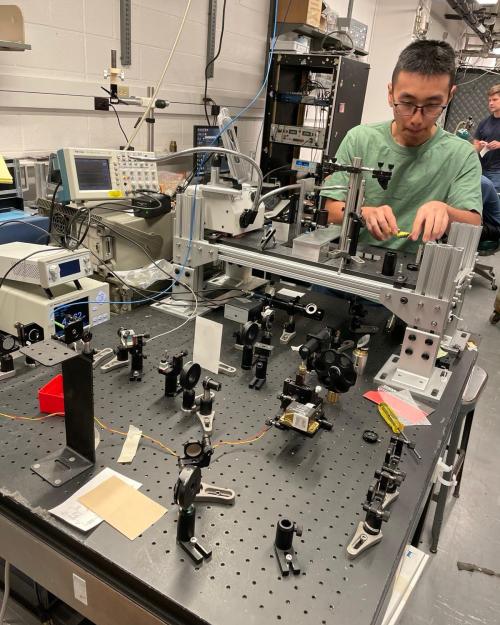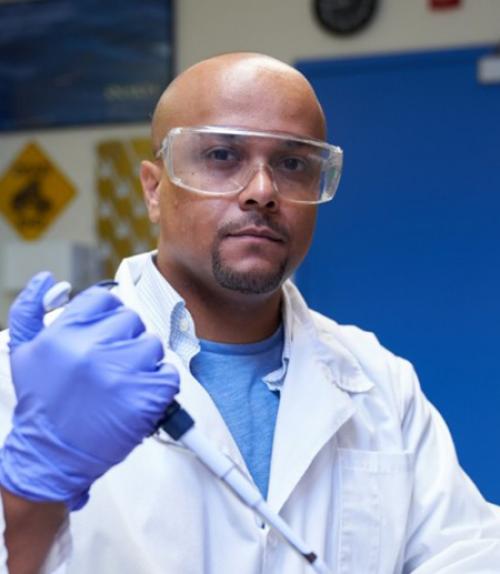For most biology students, the conventional pathway toward initiating research entails pursuing questions in a research field in which they’re interested. Jordan Garcia, a doctoral student in ecology and evolutionary biology, however, arrived at the subject of his PhD dissertation in a decidedly antithetical manner—by pursuing the field he found most pertinent to the questions about which he was curious. He is profiled in this Cornell Research story.
The questions Garcia is exploring relate to evolution—the what and how. What causes adaptation, and how does an organism evolve to suit the changing environment? Having joined Kelly Zamudio’s lab, Ecology and Evolutionary Biology, in his first semester at Cornell, fall 2018, Garcia credits Zamudio with helping him to identify the specific theme of his research dissertation evaluating the effect of climate change on salamander populations in New York and Georgia.
“Local adaptation and degrees of plasticity allow an organism to alter its structure over time to accommodate changing environments, but no organism can evolve beyond a certain point, especially not at the current pace of global warming,” says Garcia. His primary concern is that this fatal temperature level is fast approaching. Even the 25 degree samples from Georgia could not withstand an average temperature beyond 38 degrees. As temperatures increase, southern spotted salamander populations across the country are most at risk, owing to their lack of plastic response toward warmer temperatures—in conjunction with rising average temperatures in the region.
Read the full story on Cornell Research.




